Publications
Articles, publications, books, tools and multimedia features from the U.S. Institute of Peace provide the latest news, analysis, research findings, practitioner guides and reports, all related to the conflict zones and issues that are at the center of the Institute’s work to prevent and reduce violent conflict.
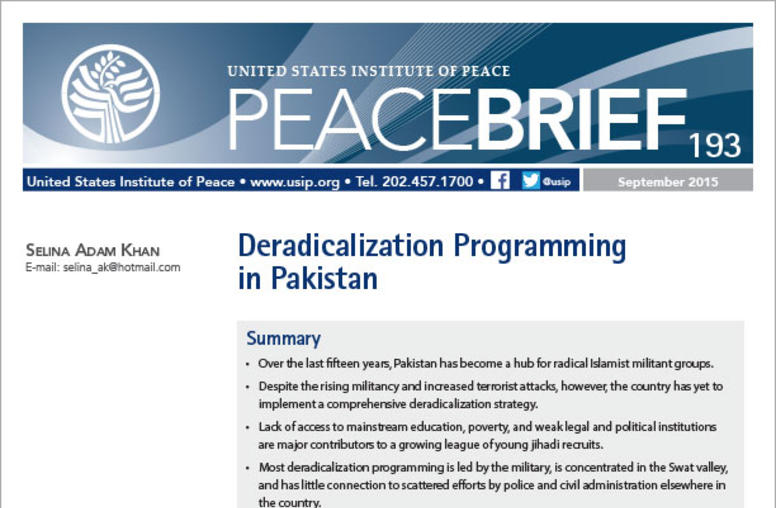
Deradicalization Programming in Pakistan
The December 2014 terrorist attack in Peshawar that killed 132 schoolchildren forced Pakistan to acknowledge the extent of its ongoing problem with radical Islamist militancy. Islamabad, however, has yet to implement a comprehensive deradicalization strategy. In January 2015, it took a formal step in this direction with its twenty-point National Action Plan in response to the Peshawar attack—a step, but only a first step. If deradicalization is to meet with any success in Pakistan, the nation...

Halting Yemen’s War: U.S. Must Lead, Nobel Peace Laureate Says
Tawakkol Karman, the Yemeni human rights activist who won the Nobel Peace Prize in 2011, called on the United States to assume a bigger role in trying to revive a political process that might end the war now tearing her country apart. She urged the U.S. government to lead in pressing for a cease-fire and the transformation of Yemen’s militias into political parties.
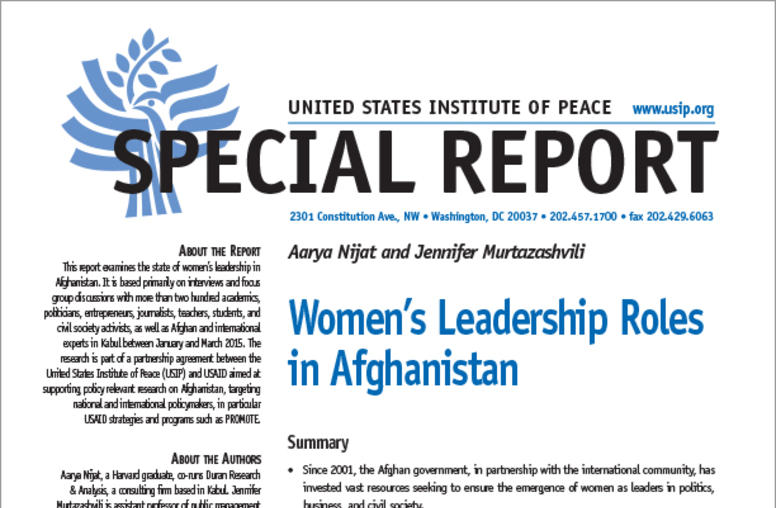
Women’s Leadership Roles in Afghanistan
In the days after September 11, the international community’s desire to “rescue” Afghan women from their social, political, and economic fate was key to mobilizing global support to topple the Taliban regime. Since then, the Afghan government and the international community have invested vast resources seeking to improve the status of women in the country, primarily through programs to support women leaders in politics, business, and civil society. Drawn on interviews and focus group discussi...
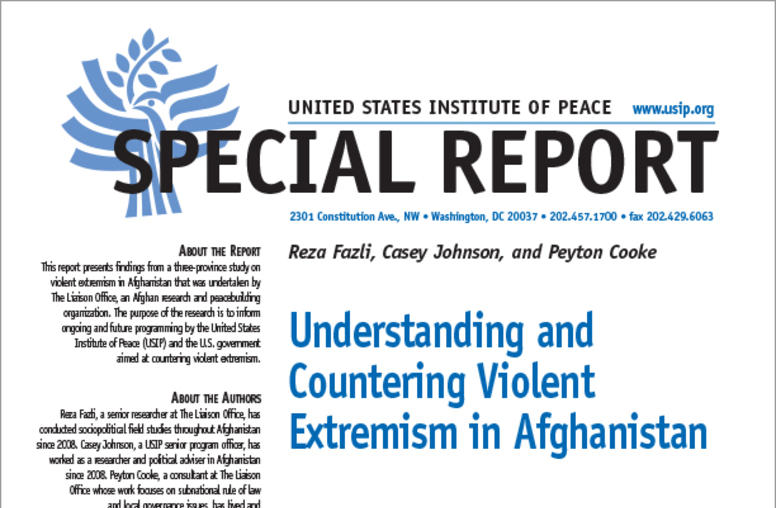
Understanding and Countering Violent Extremism in Afghanistan
Youth recruitment into extremist groups in Afghanistan continues to be a major source of group building. In field studies and interviews conducted in three provinces to elicit views on extremist groups, both violent and nonviolent, and factors thought to induce youth to join such groups, violent extremist groups emerged as unpopular and mistrusted, being perceived as un-Islamic and controlled by foreign powers. Nonetheless, the activities and ideologies of such groups have not been effectivel...
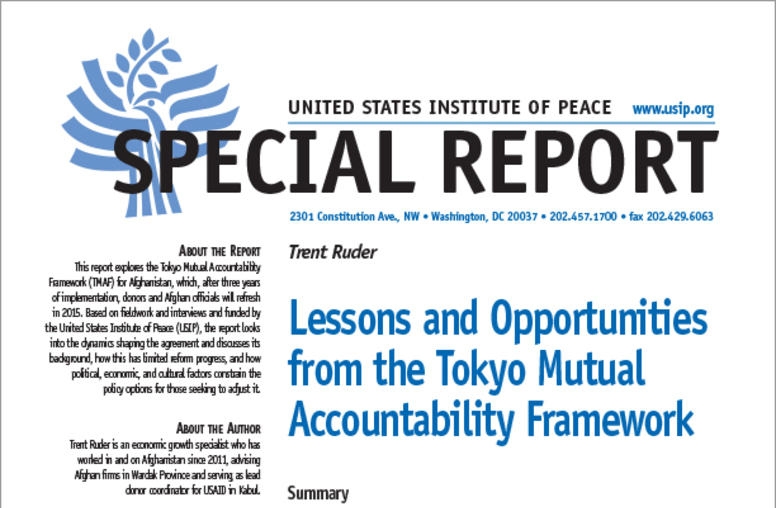
Building a Sustainable Afghanistan
Drafted in 2012, the Tokyo Mutual Accountability Framework (TMAF) provides guidelines for Afghan reform and ongoing donor support and has proved useful, but it is hobbled by political, social, financial, and bureaucratic factors. The Ghani-Abdullah unity government, inaugurated in the autumn of 2014, is looking to refresh the agreement to fit an evolving political and economic context. Policy trade-offs are inevitable, however. They raise a critical question: Is the document intended to organ...
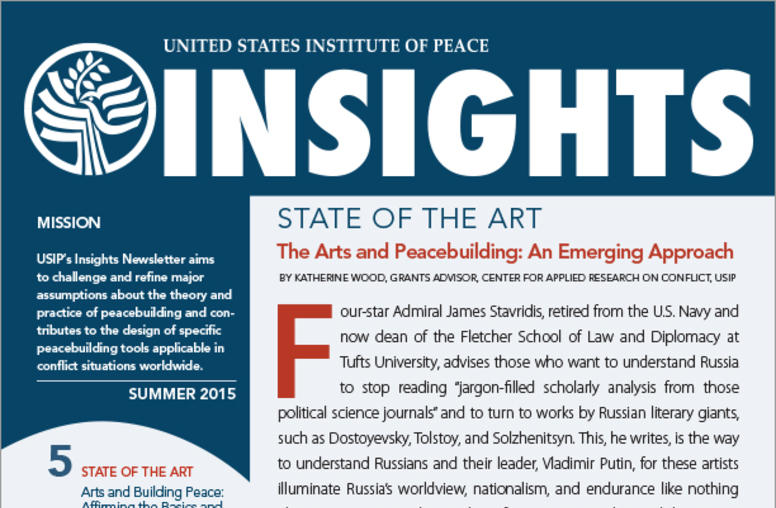
Summer 2015 Insights Newsletter
Insights highlights major questions on the research and practice of peace and conflict, to more than 10,000 subscribers from around the world.
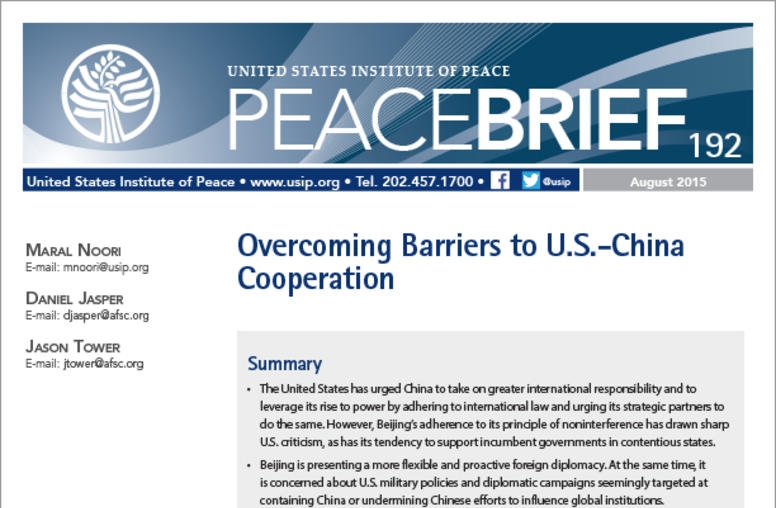
Overcoming Barriers to U.S.-China Cooperation
In 2011, U.S. president Barack Obama announced plans to "pivot" toward Asia. In 2012, Chinese president Xi Jinping expressed his hope for "a new type of relationship" with the United States. A lack of strategic trust between the two countries, however, prevents critically needed productive cooperation. This Peace Brief addresses the misunderstandings behind this mistrust and a possible way to move beyond them.
Twitter Forum Explores Lawlessness at Sea
The unreported murder of four men in plain view, all too common on the high seas, led New York Times reporter Ian Urbina into the merciless world that resulted in his investigative series, "The Outlaw Ocean." In an event hosted by the International Network to Promote the Rule of Law (INPROL) and USIP on Aug. 18, Urbina and a panel of experts convened from three continents for a virtual forum on Twitter to discuss the issues and impact of lawlessness at sea.
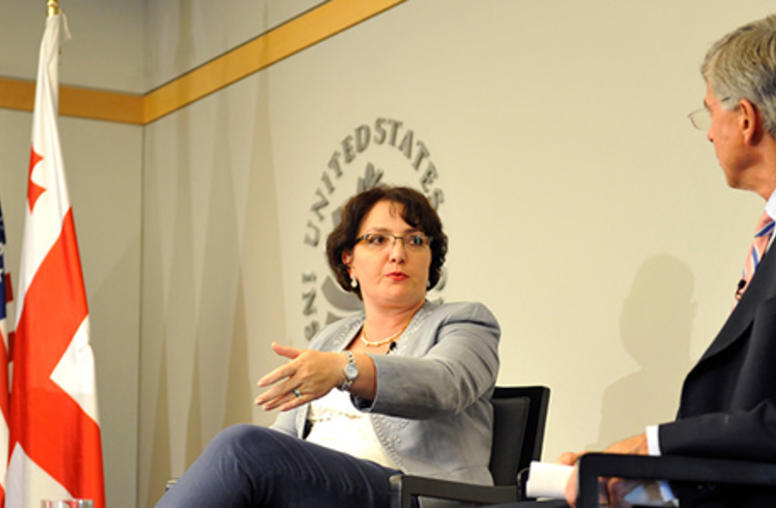
Georgia, Facing Russian Pressure, Needs NATO Path, Defense Chief Says
Even as hostilities continue in Ukraine, Russia is trying to undermine Georgia’s sovereignty with a multi-prong campaign that may not include a direct military confrontation yet poses a significant threat, according to Georgian Defense Minister Tina Khidasheli.
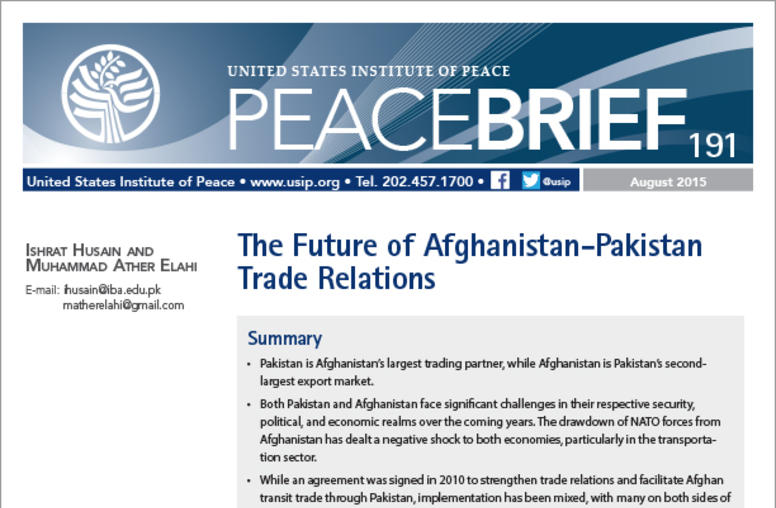
The Future of Afghanistan-Pakistan Trade Relations
Pakistan and Afghanistan are among each other’s largest trading partners. Though an agreement was signed in 2010 to strengthen trade relations and facilitate Afghan transit trade through Pakistan, implementation has been mixed, with many on both sides of the border complaining of continued barriers to exchange. Both nations need to improve trade facilitation through streamlined payments settlement and improved insurance mechanisms, the use of bonded carriers, visa issuance, trade financing, t...